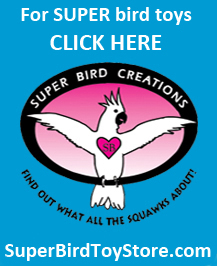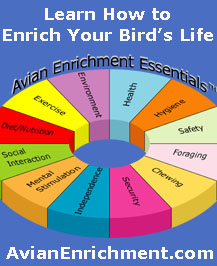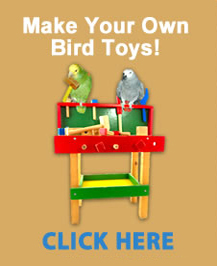Bathing Tips
|
Helpful tips and reminders related to bird baths:
|
Related Articles
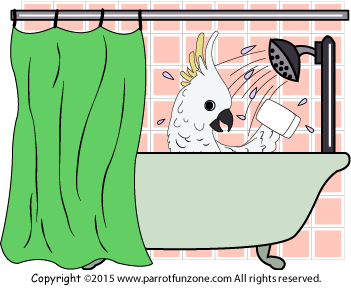 Good Hygiene
Good Hygiene
Hygiene, by definition, is the practice of cleanliness that prevents the spread of disease and ensures the preservation of health. In captivity, our birds depend...
 Why Does My Bird Lose Feathers?
Why Does My Bird Lose Feathers?
Did you know that parrots can have over three thousand feathers? Over time they wear out and need to be replaced. Molting is the biological process of slowly...
 Cleaning Tips
Cleaning Tips
Recommended Cage Cleaning Routine
Daily
Change cage liner to remove droppings and spoiled foods and minimize opportunity for bacterial and mold growth....







































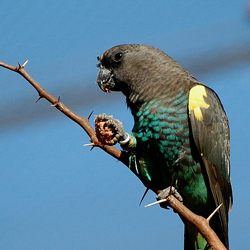



































 Provide bathing opportunities daily or at least a minimum of three times per week. Bathing promotes healthy skin and feathers.
Provide bathing opportunities daily or at least a minimum of three times per week. Bathing promotes healthy skin and feathers.